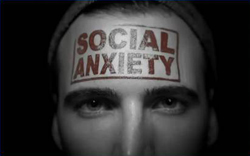Behaviorism and Mental Health – March 23, 2015
By Philip Hickey, Ph.D.
On February 18, the eminent psychiatrist Jeffrey Lieberman, MD, former President of the APA, published a video and transcript on Medscape. The article was titled, What Does the New York Times Have Against Psychiatry? and was essentially a fatuous diatribe against Tanya Lurhmann, PhD, a Stanford anthropologist, who had written for the New York Times an op-ed article that was mildly critical of psychiatry. The essence of Dr. Lieberman’s rebuttal was that an anthropologist had no business expressing any criticism of psychiatry, and he extended his denunciation to the editors of the NY Times.
“Why would such a report be printed in a widely respected publication such as the New York Times? What other medical specialty would be asked to endure an anthropologist opining on the scientific validity of its diagnoses? None, except psychiatry. Psychiatry has the dubious distinction of being the only medical specialty with an anti-movement. There is an anti-psychiatry movement. You have never heard of an anti-cardiology movement, an anti-dermatology movement, or an anti-orthopedics movement.”
I have already written a critique of Dr. Lieberman’s paper, but my purpose today is to address the question: why does psychiatry have an anti-movement? In my view, there are ten reasons.

Psychiatry routinely presents psychiatric labels as the causes of the specific problems, when in fact they are merely labels with no explanatory significance.
1. Psychiatry’s definition of a mental disorder/mental illness embraces virtually every significant problem of thinking, feeling, and/or behaving, and psychiatry has been using this definition to formally medicalize problems that are not medical in nature for the past several decades.
2. Psychiatry routinely presents these labels as the causes of the specific problems, when in fact they are merely labels with no explanatory significance.
3. Psychiatry has routinely deceived, and continues to deceive, their clients, the public, the media, and government agencies, that these vaguely defined problems are in fact illnesses with known neural pathology.
4. Psychiatry has blatantly promoted drugs as corrective measures for these illnesses, when in fact it is well-known in pharmacological circles that no psychiatric drug corrects any neural pathology. In fact, the opposite is the case. All psychiatric drugs exert their effect by distorting or suppressing normal functioning.
5. Psychiatry has conspired with the pharmaceutical industry in the creation of a vast body of fraudulent research, all designed to “prove” the efficacy and safety of pharma products.
6. A great many psychiatrists have shamelessly accepted pharma money for very questionable activities. These activities include the widespread presentation of infomercials in the guise of CEUs; the ghost-writing of books and papers which were actually written by pharma employees; paid psychiatric “thought leaders” who promote new drugs and diagnoses for pharma; acceptance of fraudulent advertising in peer-reviewed journals; acceptance of pharmaceutical money by the APA; targeting of captive and vulnerable audiences in nursing homes, group homes, and foster-care systems for prescription of psychiatric drugs; etc., etc…
In addition, 70% of the DSM-5 task force members had received funding from the pharmaceutical industry.
7. Psychiatry’s spurious diagnoses are inherently disempowering. To tell a person,who in fact has no biological pathology, that he has an incurable illness for which he must take psychiatric drugs for life is an intrinsically disempowering act which falsely robs people of hope, and encourages them to settle for a life of drug-induced dependency and mediocrity.
8. Psychiatry’s “treatments”, whatever transient feelings of well-being they may induce, are always destructive and damaging in the long-term.
9. Psychiatry’s spurious and self-serving medicalization of every significant problem of thinking, feeling, and/or behaving, effectively undermines human resilience, and fosters a culture of powerlessness, uncertainty, and dependency. Relabeling as illnesses, problems which previous generations accepted as matters to be addressed and worked on, and harnessing billions of pharma dollars to promote this false message, is morally repugnant.
10. Psychiatry neither recognizes nor accepts any limits on its expansionist agenda. In recent years, they have even stooped to giving neuroleptic drugs to young children, a “treatment”, the long term effects of which, can only be guessed at.
. . . . . . . . . . . . . . . .
And that, Dr. Lieberman, is, at least for me, why psychiatry has an anti-movement. Psychiatry as a profession is intellectually and morally bankrupt, and has consistently demonstrated a marked aversion to anything remotely akin to critical self-scrutiny. There is nothing new in what I’ve written above. All of these points have been made over and over, by numerous writers, including, even a small number of psychiatrists. But the psychiatric leadership and the great majority of the rank and file, remain adamantly deaf and blind to these obvious shortcomings. Indeed, psychiatry’s general response to any kind of criticism is to re-assert its core tenets with renewed determination, as if an increase in zeal could somehow compensate for a lack of logic and evidence.
And the reason that there is not an anti-cardiology movement, or an anti-dermatology movement, or an anti-orthopedics movement, is because these, and other legitimate medical specialties, are not guilty of the spurious, destructive, and deceptive practices outlined above.
It’s not us, Dr. Lieberman. It’s you and your psychiatric colleagues who have created something so rotten and flawed that anti is the only appropriate stance consistent with human decency.
http://www.behaviorismandmentalhealth.com/2015/03/23/why-is-there-an-anti-psychiatry-movement/




SHARE YOUR STORY/COMMENT